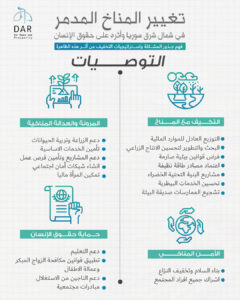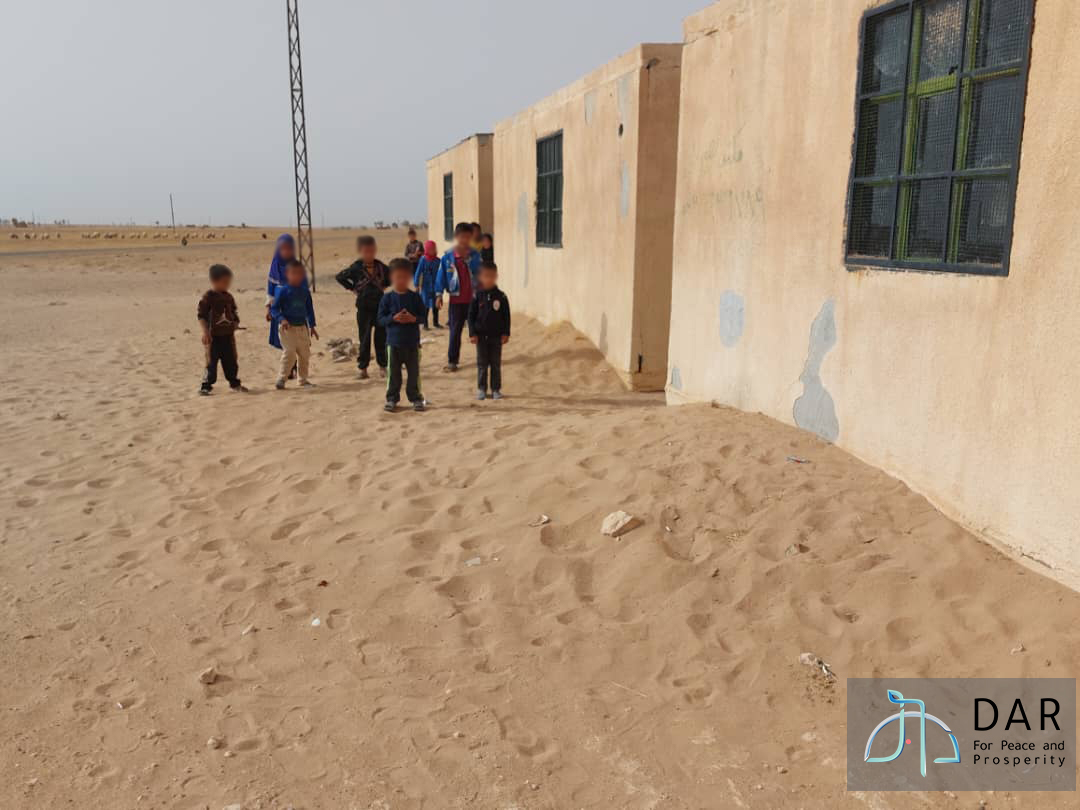The Devastating Impact of Climate Change on Human Rights
The project, “Destructive Climate Change and Its Impact on Human Rights,” aimed to analyze the varied consequences of climate change in a targeted region, focusing on environmental, social, and human rights impacts.
The study identified external causes, such as reduced forest and agricultural areas due to desertification, and internal causes, including unsustainable practices and political factors related to regional policies.
Field studies revealed substantial environmental, social, and human rights consequences. These included a significant decline in agricultural production, exacerbating existing challenges of poverty. Heightened water scarcity placed additional stress on already strained resources, leading to internal displacement as communities struggled to adapt to changing environmental conditions.
The social repercussions were particularly profound. Increased poverty, driven by reduced agricultural output, intensified the population’s struggle for survival. This economic strain led to a rise in school dropout rates, particularly among children, and an increase in child labor, undermining their fundamental rights to education and protection from exploitation.
Additionally, the study highlighted a rise in cases of underage marriages, further violating the rights of young girls and reflecting the desperate circumstances families faced. Exploitation, particularly affecting women, became a widespread issue, intensifying gender-based vulnerabilities and stripping individuals of their basic rights.
The findings underscore the complex interplay between environmental degradation, economic hardship, and human rights violations, emphasizing the critical need for sustainable solutions to mitigate the adverse effects of climate change.
For more information click here




